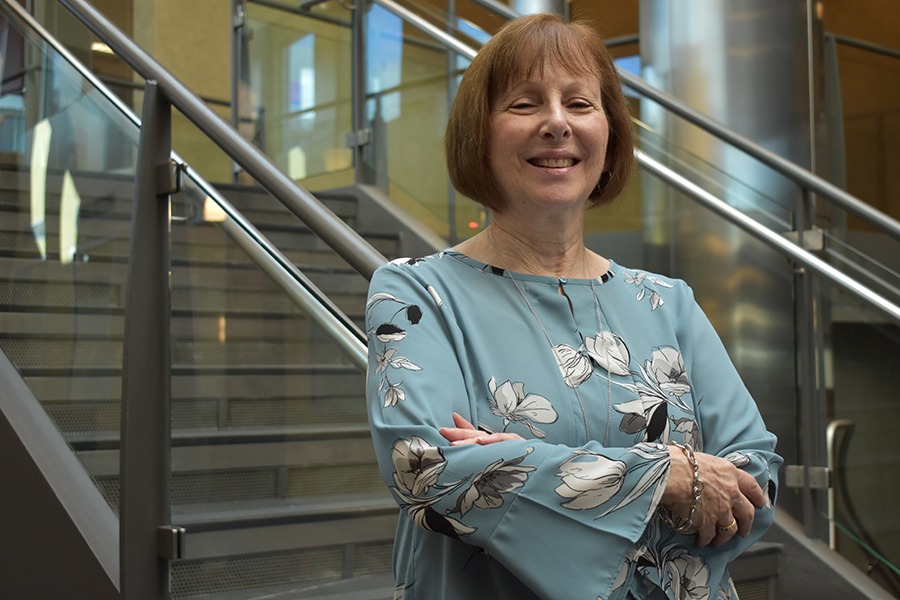Meet the Nurse Executive Using Computer Science to Improve Patient Care
 Have you heard of Health Informatics? According the Bureau of Labor Statistics, you should—employment of health information technicians is projected to grow 15 percent through 2024. That’s great news for Philadelphians, considering the wealth of healthcare jobs available in the area. To better explain health informatics and its importance in the healthcare industry, we sat down with Ellen Murray, RN, MSN, NE-BC, Division Manager at Main Line Health HomeCare and Hospice, to shed some light on how her Villanova University Graduate Certificate in Health Informatics is shaping her medical career and the future of patient care.
Have you heard of Health Informatics? According the Bureau of Labor Statistics, you should—employment of health information technicians is projected to grow 15 percent through 2024. That’s great news for Philadelphians, considering the wealth of healthcare jobs available in the area. To better explain health informatics and its importance in the healthcare industry, we sat down with Ellen Murray, RN, MSN, NE-BC, Division Manager at Main Line Health HomeCare and Hospice, to shed some light on how her Villanova University Graduate Certificate in Health Informatics is shaping her medical career and the future of patient care.
Before we jump into Health Informatics, can you explain your role?
I’m responsible for the day-to-day operations of two nursing teams, so my days are very fast-paced, especially with all of the changes occurring in healthcare. I support my staff of 70 employees in providing the highest level of care to homebound patients in the areas of Philadelphia and Delaware counties.
How does Health Informatics impact your work?
Health Informatics plays a growing role in my day-to-day work because it allows me to track data in real time when my clinical staff is out in the field. I can track distances driven, length of a patient visit, how long documentation time takes, metrics related to patient hospitalizations, and an endless number of queries, which all help us improve or change how our work is done.
Does Health Informatics impact patients as well?
Yes! For patients, there are so many innovations in Health Informatics which guide and help their recovery. For example, our Advanced Illness Management Team uses 125 telemonitoring units, which allows for remote monitoring of patients’ weights, blood pressures and pulses. Other informatics advances allow patients to stay home rather than endure lengthy hospital stays when they need left ventricular assist devices or IV drugs via pumps to bolster their cardiac function. The list of advances changes every day!
How does your team impact the local community?
Everything I do directly impacts the staff who impact the patients in our area. When the staff are supported, have the tools they need to do their jobs and are engaged in all aspects of their job, we are sure to provide great care.
Why did you decide to pursue nursing, especially home care/hospice?
I’ve always felt passionate about providing great care to patients. When I was 15 years old, my mom was diagnosed with late-stage non-Hodgkin lymphoma, and I helped care for her at the hospital. She would call me “her nurse” and after she passed away just three months after her diagnosis, I decided I would go to nursing school. I’ve always loved caring for patients and supporting their families through their illness and hopeful recovery.
Do you feel that Villanova’s Health Informatics program helps you succeed?
Villanova’s Health Informatics program helped me to think differently about the possibilities and the small differences that can really impact care. For example, I was able to implement changes to our nurses’ electronic documentation after taking my first Health Informatics class. These updates provided my nursing staff with guidance on the best practices when they are documenting initial visits, which in turn improves diagnosis and outcomes. At Villanova, I realized the need for lifelong learning, the importance of staying current and finding better ways to do things. My education emphasized the pace at which healthcare is changing and that in order to improve patient outcomes, we need to embrace technology.
What advice would you give to students interested in pursuing a career in healthcare?
There are many opportunities for healthcare careers in our area. Students pursuing a career in healthcare need to consider that providing quality care to patients requires an ability to be empathetic to a vulnerable population and always put the needs of the patient first.
Learn more about Villanova’s Online Graduate Certificate in Health Informatics.
This is a paid partnership between Villanova University College of Liberal Arts and Sciences and Philadelphia Magazine


